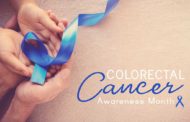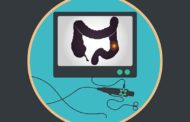Screening for Colon Cancer
By Christopher Kleeman, MD

Colon cancer remains the 3rd most common and 3rd most deadly cancer in the U.S., with over 140,000 people diagnosed each year and over 50,000 dying from the disease. In 2017, for example, there were over 600 colon cancer deaths in Maine.
Fortunately, it is highly preventable with routine screening. This is because most colon cancers arise from a polyp, which is a growth on the lining of the colon. These polyps can be removed by undergoing a safe outpatient procedure called a colonoscopy.
Who should get screened for colon cancer?
Currently, anyone over the age of 50 should be screened, even if they have no symptoms. A repeat colonoscopy may be recommended up until the age of 75 to 80. The vast majority (over 90%) of colon cancer occurs in people over 50. However, there has been a rising number of colon cancers in young people for unclear reasons, possibly related to diet. For this reason, the government is considering changing the starting age for screening to 45. Several medical organizations already recommend this.
There are also several groups who should be screened earlier, especially African Americans (age 45), people with a family history of colon cancer (age 40 or 10 years before the relative was diagnosed), and people with genetic or inflammatory conditions that increase their risk. It is critical that you talk to your primary care doctor about your personal risk factors and get screened.
What type of screening tests are available?
The best test is the one that gets done, so don’t delay. Colonoscopy is widely regarded as the most effective screening test because it allows the doctor to find and remove polyps before they become cancer.
If you are unable to do a colonoscopy, there are several alternatives, including an annual stool test looking for microscopic blood (called a FIT test). Second tier tests include a CT scan of the colon (CT colonography) every 5 years, sigmoidoscopy every 5-10 years, or stool DNA testing (known as Cologuard) every 3 years.
What do I need to know about colonoscopy?
Colonoscopy is a safe and accurate procedure for detecting polyps and cancers. Finding cancer at an early stage, before it spreads, can be lifesaving. The procedure is done after taking a bowel cleanse and usually performed under sedation. For more information about this important test, please contact Northern Light Mercy Gastroenterology at 207-535-1100.
Dr. Kleeman is a gastroenterologist with Northern Light Mercy Gastroenterology.
Content Provided by
Northern Light Mercy Hospital, a nonprofit community hospital sponsored by the Sisters of Mercy, has been providing care to greater Portland since 1918. Mercy consistently receives an ‘A’ grade by The Leapfrog Group for meeting the highest safety standards in the country. It has also been recognized as a top hospital by Newsweek and U.S. News and World Report.
View more health and wellness content provided to the community by Northern Light Mercy Hospital here.




